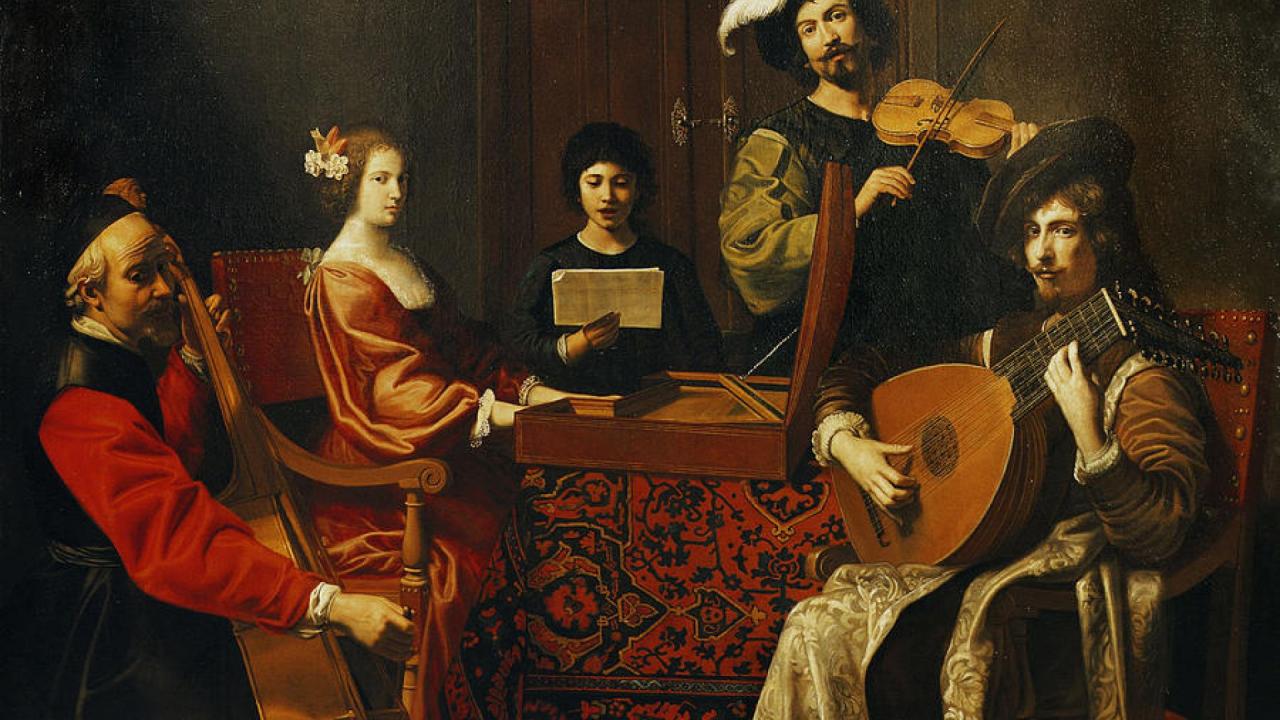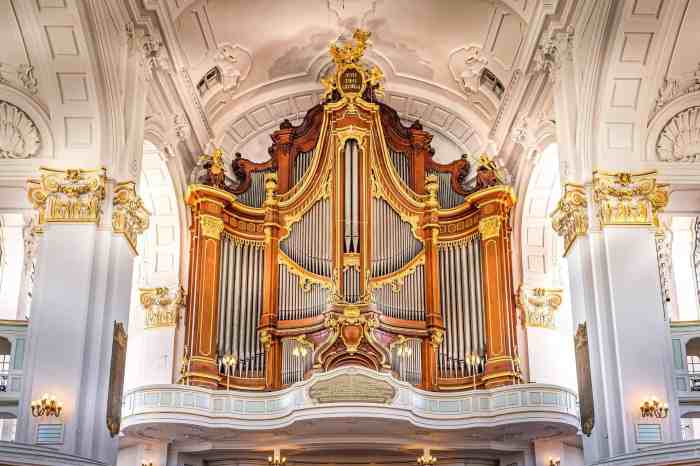Baroque style flourished in music during which period? The Baroque era, spanning from the early 17th to mid-18th centuries, witnessed a profound transformation in musical expression, characterized by its intricate ornamentation, expressive counterpoint, and dynamic contrasts. This era marked a significant departure from the Renaissance style that preceded it, leaving an enduring legacy on the development of Western music.
The Baroque era was a time of great cultural and artistic ferment, influenced by the rise of absolutism, the scientific revolution, and the Protestant Reformation. These factors shaped the aesthetics and themes of Baroque music, which often reflected the grandeur, drama, and religious fervor of the period.
Historical Context of the Baroque Era

The Baroque era, spanning from approximately 1600 to 1750, was a period of significant cultural and artistic change in Europe. It emerged during a time of religious and political upheaval, characterized by the Protestant Reformation and the Thirty Years’ War.
The Baroque style reflected the grandeur and opulence of the period, influenced by the rise of absolute monarchies and the Catholic Counter-Reformation. Major historical events during this time included the Scientific Revolution, the rise of mercantilism, and the expansion of European empires.
Characteristics of Baroque Music

Baroque music is known for its elaborate ornamentation, complex counterpoint, and dynamic contrasts. It typically features intricate melodic lines, embellished with trills, turns, and mordents.
Counterpoint, the combination of multiple independent melodic lines, is a defining characteristic of Baroque music. Composers used counterpoint to create rich and complex textures.
Dynamics, the variation in volume, were also an important element of Baroque music. Composers used dynamics to create a sense of drama and excitement.
Key Composers of the Baroque Period: Baroque Style Flourished In Music During Which Period

The Baroque period produced some of the most influential composers in Western music history. Here is a table of some of the key composers and their significant works:
| Composer | Nationality | Significant Works |
|---|---|---|
| Johann Sebastian Bach | German | Brandenburg Concertos, Goldberg Variations, Mass in B Minor |
| George Frideric Handel | German (later naturalized British) | Messiah, Water Music, Music for the Royal Fireworks |
| Antonio Vivaldi | Italian | The Four Seasons, Gloria, L’estro armonico |
| Domenico Scarlatti | Italian | Sonatas for Keyboard, Essercizi per gravicembalo |
| Henry Purcell | English | Dido and Aeneas, The Fairy-Queen, Ode for St. Cecilia’s Day |
Baroque Music in Different Genres
Baroque music was used in a wide variety of genres, including opera, oratorio, and instrumental music.
Opera, a genre that combines music, drama, and spectacle, flourished during the Baroque period. Composers such as Handel and Vivaldi wrote some of the most famous operas of all time.
Oratorio, a large-scale choral work with a religious or dramatic theme, was another popular genre during the Baroque period. Handel’s Messiahis one of the most famous examples of an oratorio.
Instrumental music also played an important role in the Baroque period. Composers such as Bach and Vivaldi wrote sonatas, concertos, and suites for a variety of instruments.
Influence of Baroque Music on Later Styles
Baroque music had a profound influence on subsequent musical styles, including Classical and Romantic periods. Composers such as Haydn, Mozart, and Beethoven were heavily influenced by the techniques and aesthetics of Baroque music.
Baroque musical techniques, such as counterpoint and dynamics, were adopted and adapted by later composers. Baroque aesthetics, such as the use of grandeur and opulence, also influenced the development of later musical styles.
FAQ Resource
When did the Baroque style flourish in music?
The Baroque style flourished in music from the early 17th to mid-18th centuries.
What are the defining characteristics of Baroque music?
Baroque music is characterized by its intricate ornamentation, expressive counterpoint, and dynamic contrasts.
Who are some of the most influential Baroque composers?
Some of the most influential Baroque composers include Johann Sebastian Bach, George Handel, and Antonio Vivaldi.
How did the Baroque style influence later musical styles?
The Baroque style influenced later musical styles, including Classical and Romantic, through its emphasis on ornamentation, counterpoint, and dynamics.